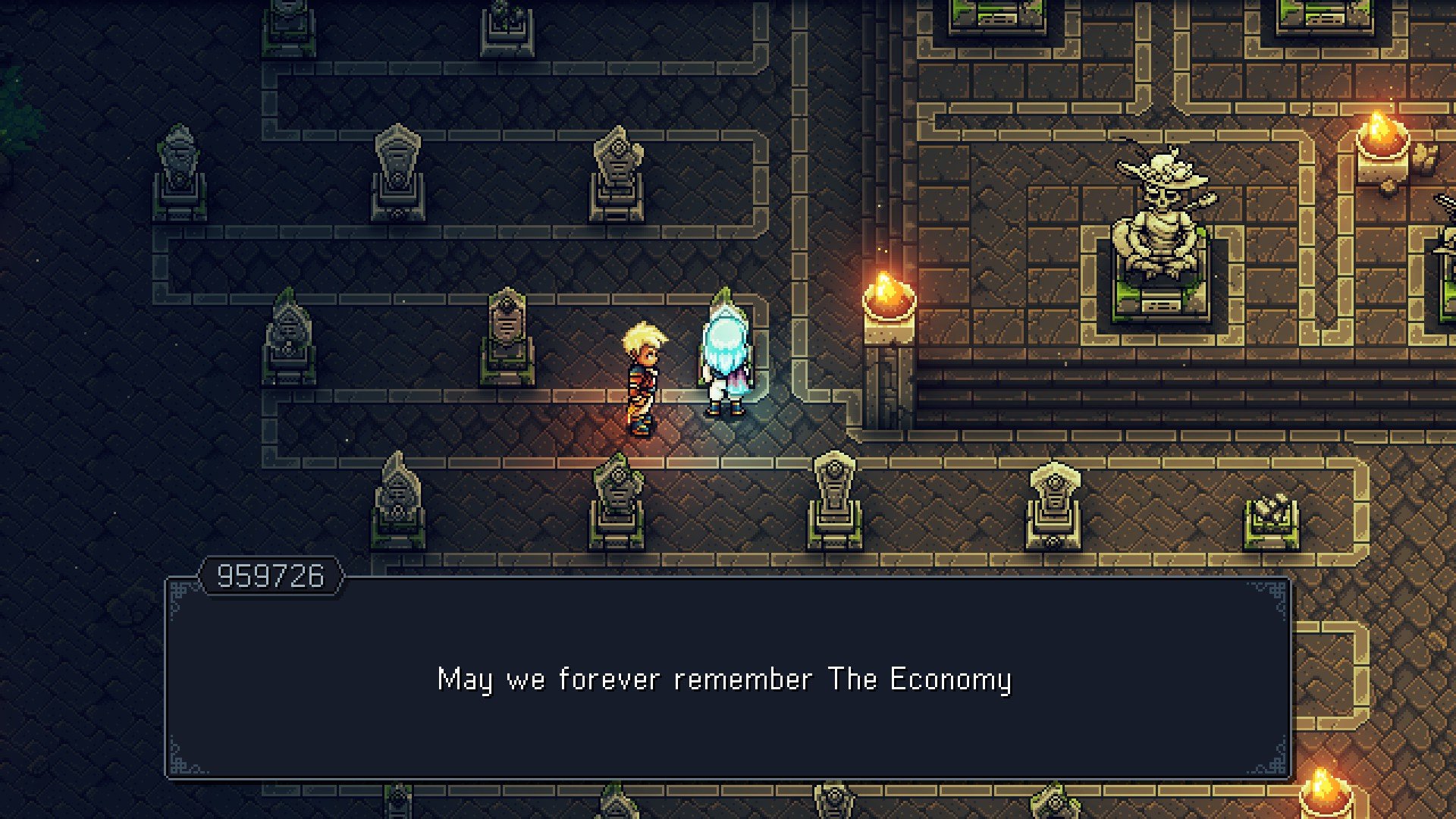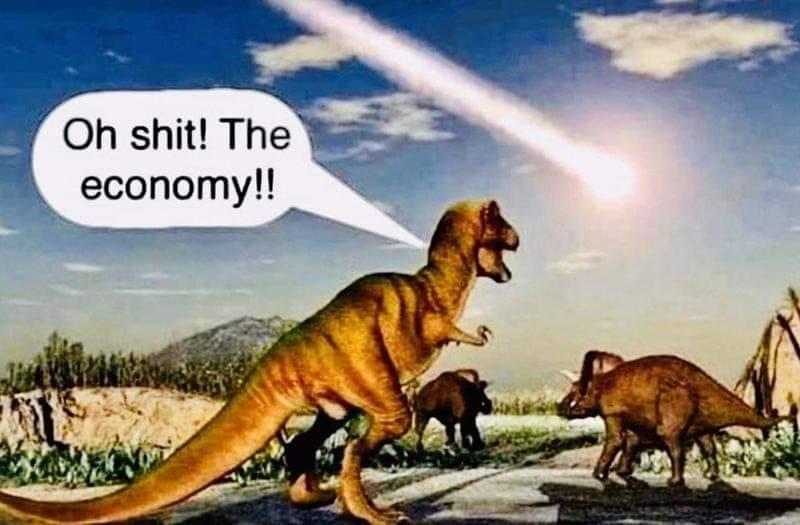Oh no not the economies! (millions to billions dead)
They’re also very likely underestimating or only looking at a fairly short time window. Worse yet, climate change and its results are only effects of a still deeper cause: using a very temporary surplus of non-replaceable resources, we overshot the planet’s ability to indefinitely support human life, culture, economy, technology, everything human – by nearly an order of magnitude. As we continue to refuse to reduce unsustainable rates of non-renewable resource consumption, we will cross scarcity thresholds that are expected to result in about 90 percent (or more) population attrition; not in a short time but still within just a couple of generations. It’s nearly impossible to imagine any economy beyond very local economies surviving the transition.
Edited to add: It’s unfortunate that the vast majority of coverage of our modern predicament in widespread sources of news and commentary focuses only on the climate change part of the situation. Because that strongly implies to most people that there could be solutions which would avert or greatly mitigate the coming (and ongoing) disaster, if only we can reduce or even reverse human contribution to climate change quickly enough. But in fact that is a luxury we do not have, not even nearly. We are so far into overshoot that nothing we can do – even if everyone were on board and like-minded – can now prevent the attrition that lies ahead, coming at us through any combination of low birth rates, starvation, war, disease, weather events and ‘disasters’, and failure of infrastructure including health care.
For those who believe it’s as simple as accomplishing a green energy transition, there’s ample information online from reputable sources that explains how we don’t actually have that outlet, as much as we certainly wish we did. The current population is essentially 90 percent made out of and enabled by cheap fossil fuels in ways that go far beyond just energy. Even waking up tomorrow with a perfect solution to fusion energy would not save us from the coming nitrogen shortage and a long list of other irreplaceable current materials and practices.
Great write up. It should have been the emergency alert in the states today lol.
When you look at most reources you will find that the richest 10% make up about half of the global resource consumption. That is not just true for energy, but also for things like food due to meat. At the same time there is a minimal base for resources and we are going to adapt to new circumstances. Especially with resource constraints not being a total cut, but a slower process, this is bound to happen.
It becomes even more striking, when you look at how resources are disributed globally. Brazil for example is in a decent state. Able to provied enough food for its population and has a good bit of renewables. Obviously poverty and crime is common today, but it is certainly a workable position. Europe as a whole might be able to just cut down and survive for a bit. Nearly 29% of primary energy of the EU come from low carbon sources and the EU is food independent, with massive overconsumption of energy and food. So cut backs and some adaption might make it work.
Poin is that it is that a 90% death rate is very likely massivly overstated. Some regions will be in trouble, but not everybody will be.
This is a controversial topic already addressed in the latest IPCC report. Measuring damage in some currency is probably not a good measure and one should use something like “number of humans suffering”
But that’s maybe what powerful politicians make listening
I’m not sure what you mean by this? Economies are more than just stock markets.
With how fragile our supply, manufacturing, and transportation systems, economic crash would very well lead to many deaths


Good I hate the economy.
A good economy is bad for the average worker, as it means companies are doing well. Unfortunately a bad economy is also bad for the average worker, as losses are socialized, usually in tax dollars. Enjoy your existence, peasant.
I think you’re conflating the economy with the financial market.
From an economic standpoint, we objectively are fucking up our system of resources with greenhouse gasses and other anti environmental policy.
From a financial standpoint, selling oil makes money.
No, you really don’t. You may hate how the current economy functions, which is fair. Any system where people barter, use currency, or even a pure centrally planned communist system is an economy.
I.e. unless you live off the land, the economy is how you keep food in the table.
unless you live off the land
That sounds awesome let’s do that
if you do economy, then maybe in like 45 years
deleted by creator
This is probably why the Australian government won’t release the climate threat report.
Stone cold actuarial analysis predicting devastating results.
It would literally panic the population.
Tropical Asia uninhabitable is not good for the economy. Like at all.
Nor is 60-80 million climate refugees controllable with “tough border policies”
Even just the small part of the disaster that falls under the heading of sea level rise would be just a little bad for trillions in current real estate valuation. And then there’s what true risk valuation in river flood plains and wildfire risk zones would do. And then…
It should panic the population
Aye.
I read the actual report, well worth looking at.
Very sobering when you see actuaries - the dry math types that make accountants look like party animals state:
… at what point do we expect 50% GDP destruction – somewhere between 2070 and 2090 depending on how you parameterise the distribution.
Ultimately, it will destroy all of them. Y’all just haven’t calculated when yet.
Destruction is easier than construction, that’s physics.
Which makes it always cheaper to prevent and not do the destruction in the first place, but we’re going to keep polluting until we can pollute no more except we’ll always be able to pollute more, because it’s easy. The consequences aren’t.
Article is probably a bit sensacionary but link to the publication is in the first paragraph
Link isn’t opening- do you have a reference so I can look it up?


